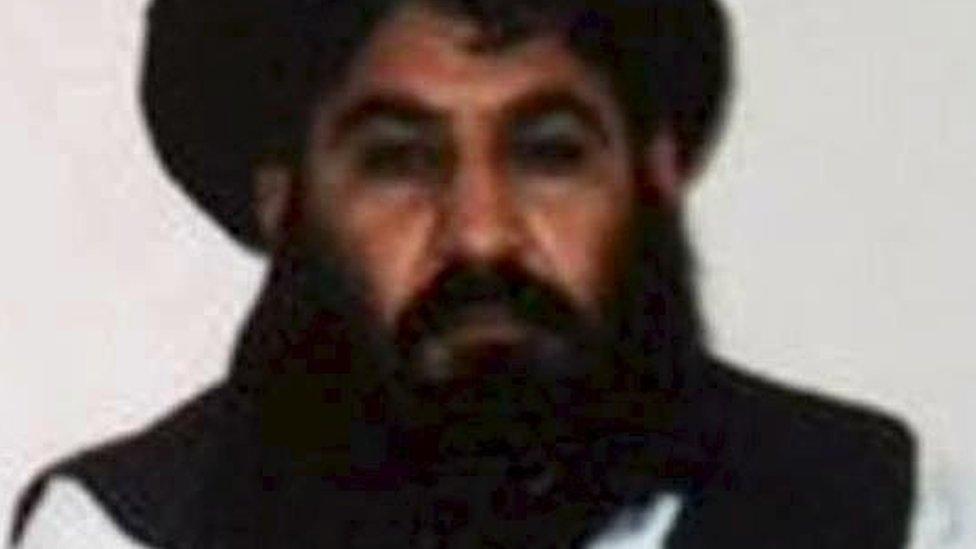Pakistan hosts four-way Afghanistan peace talks
- Published
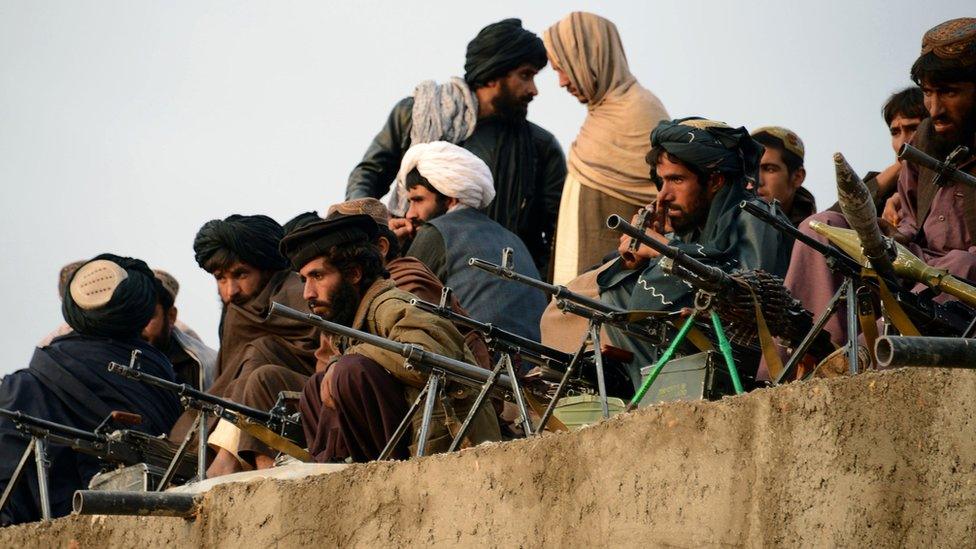
The Taliban, divided following a leadership struggle, are not attending the talks
Key Afghan, Pakistani, Chinese and US officials have met for talks aimed at establishing a roadmap for peace between Afghanistan and the Taliban.
The Afghan government has been locked in a bloody conflict with Taliban militants for more than a decade.
Delegates hope the talks, hosted by Pakistan, will help pave the way for negotiations with the Afghan Taliban.
However, the Taliban, who are divided by factional infighting, did not attend Monday's talks.
A statement issued at the end of the meeting said that "all four countries underscored the importance of bringing an end to the conflict in Afghanistan".
"The participants emphasised the immediate need for direct talks between the government of Afghanistan and representatives of Taliban groups in a peace process that aims to preserve Afghanistan's unity, sovereignty and territorial integrity," it added.
Peace talks between the Afghan government and the Taliban last year collapsed, after news emerged that Taliban leader Mullah Omar had in fact died in 2013.
His deputy Mullah Mansour was declared leader in July - but a number of senior Taliban commanders refused to pledge allegiance to him and a faction opposed to him was set up under Mullah Mohammad Rasool.

Analysis: M Ilyas Khan, BBC News, Islamabad
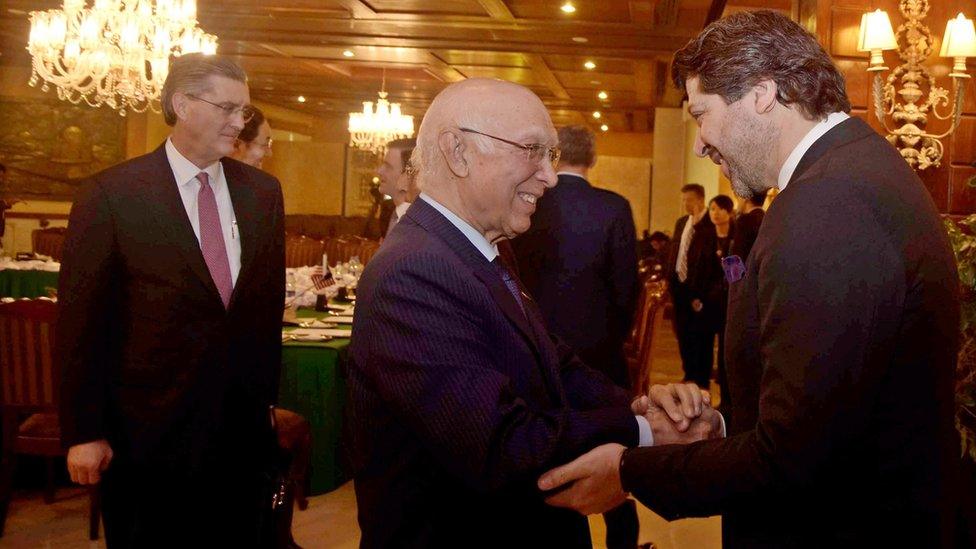
Pakistani foreign affairs adviser Sartaj Aziz (centre), Afghan Deputy Foreign Minister Hekmat Khalil Karzai (right) and US special representative Richard Olson (left) at the talks
Perhaps the most significant aspect of these talks is the participation of the US and China, which can to an extent dilute Kabul's scepticism about Pakistani motives.
But the complexity of links between Pakistan and the Taliban are likely to make the reconciliation process trickier, and protracted.
The question of whether the Taliban could end up being happy with what Kabul can offer may be closely linked to the extent to which Pakistan is satisfied with the direction of the talks. This is because Pakistan is widely understood to be housing the Taliban leadership on its soil and has influence over them, though it denies this.
Pakistan would like the participants to reduce the impact of anti-Pakistan elements in Kabul, and persuade the Afghan government to be less enthusiastic about its relations with India, Pakistan's rival.
The rift within the Taliban may also figure as a hurdle in successful reconciliation - but many say this could be just a political ploy because the breakaway Taliban faction is too weak and without a safe sanctuary and resources.

The Taliban has launched several high-profile attacks in recent months.
In December, the militant group launched an attack on the strategic district of Sangin. It later seized and blew up the police headquarters and governor's compound.
And in September, the Taliban briefly overran the northern Afghan city of Kunduz, in one of their biggest victories since 2001.
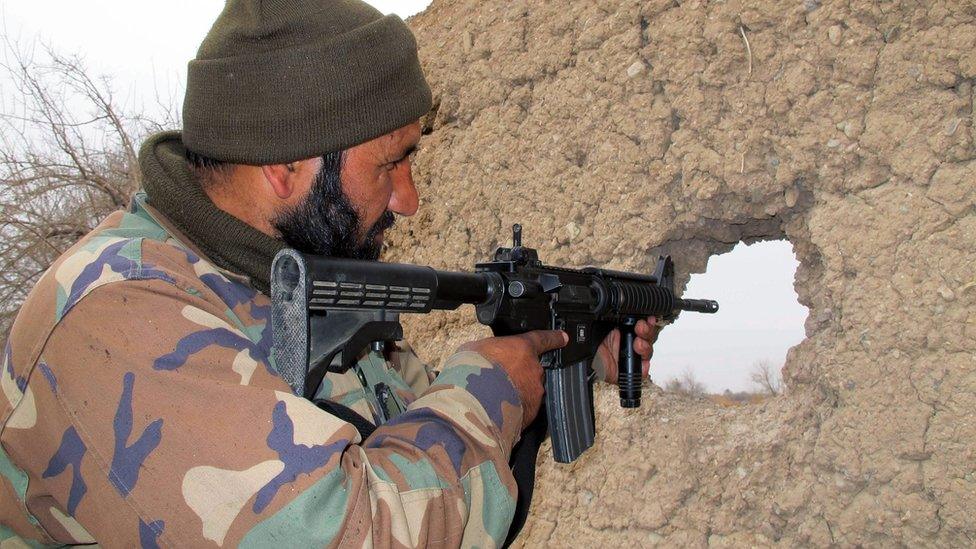
Sangin has seen fierce clashes between the Taliban and government troops
- Published23 September 2015
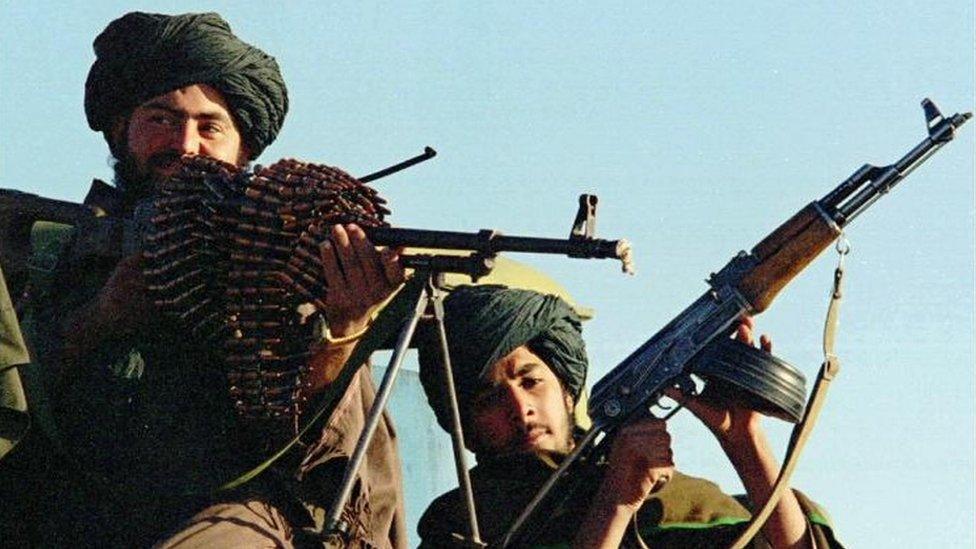
- Published22 May 2016
